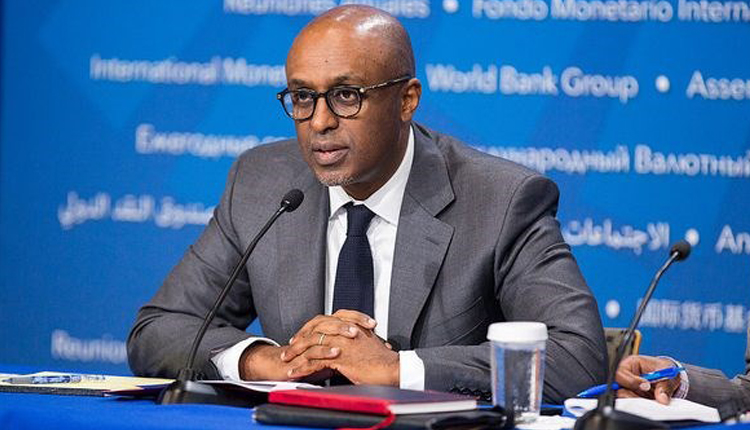The International Monetary Fund, IMF, has said that Nigeria and many other Sub-Saharan African countries may be facing funding squeeze that would undermine its development in the medium to long term.
The IMF’s Director, African Department, Mr Abebe Selassie, who disclosed this at the just concluded 2023 sessions of the World Bank and IMF Spring meetings in Washington DC, USA, hinted that the countries may also be forced to restructure existing loans at the backdrop of rising resource gap.
Moreover, according to him, the region’s resilience is now being threatened by the myriad of fiscal and macro-economic challenges.
He stated: ‘‘the region’s resilience is being severely tested. We projected growth to decelerate to 3.6 percent down from 3.9 percent last year’’.
Though the IMF growth forecast for Nigeria remained stable at 3.2 percent, it also indicated below average performance against the sub-regional forecast.
Abebe noted further, ‘‘The important factor influencing this negative outcome is the big funding squeeze that countries are facing. External funding market has been sharply curtailed. Overseas development assistance has continued to trend downwards, and the region has seen a recent reduction in other investments.
‘‘Our latest regional outlook finds that this big funding squeeze which many countries are facing calls for tough decisions when it comes to investing in crucial areas like health, education, and infrastructure’’.
On the implication of the funding squeeze, he said, ‘‘This will not only impact them now but also in the years to come, as by 2040 or so, a third of new entrants in to the global labor market will be from Sub Saharan Africa. Skilled educated workers will be vital to the health and stability of the global economy. But today’s funding squeeze might impact the region’s ability to provide them.
‘‘I’ve always said that this is the African century but if measures are not taken to address the funding squeeze now, the region may be held back from developing this potential’’.
He said the IMF is still doing a lot to mitigate the adverse situation.
According to him, “As at last month, we have 21 lending arrangements with countries in the sub-region and we’re still bringing more programs under discussion.
‘‘Between 2020 and 2022, we provided more than $50 billion for programs, emergency financing, and Special Drawing Rights allocation.
‘‘We’re also continuing to provide asset development and technical assistance and training to the sub-region.
‘‘In terms of policy priorities, there is a need to first consolidate public finances and strengthen public finance management. This means to rely on continued revenue mobilization, better management of fiscal risks, and more proactive debt management’s in countries where debt levels are elevated, and that is clearly unsustainable.
‘‘Restructuring is going to be unavoidable and a well functioning framework will be vital to create the required fiscal space.”


